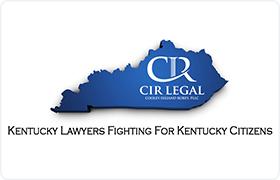Ingram Family Law Lawyer, Kentucky
Sponsored Law Firm
-
 x
x

Click For More Info:
-
Cooley Iuliano Robey, PLLC
201 West Short Street Suite 500 Lexington, KY 40507» view mapDivorce & Family Law Finally – Lawyers Focused On You
Our goal is simple – provide top-notch legal representation focused on achieving our client’s goals. Here, you aren’t just another file number with an expected revenue stream.
800-657-2510
Includes: Collaborative Law, Domestic Violence & Neglect, Paternity, Prenuptial Agreements
Clyde Bishop Johnson
Motor Vehicle, Family Law, Personal Injury, Trusts
Status: In Good Standing *Status is reviewed annually. For latest information visit here
Jeffery Wade Helton
General Practice
Status: In Good Standing *Status is reviewed annually. For latest information visit here
Shelli D D Yoakum
General Practice
Status: In Good Standing *Status is reviewed annually. For latest information visit here
Brandon Kibert
Juvenile Law, Federal Appellate Practice, Family Law, Reorganization, Bankruptcy
Status: In Good Standing *Status is reviewed annually. For latest information visit here Licensed: 14 Years
Lisa Lynn Fugate
General Practice
Status: In Good Standing *Status is reviewed annually. For latest information visit here
Brooke E Hembree
Family Law
Status: Inactive *Status is reviewed annually. For latest information visit here
Jennifer Jeane Perkins
General Practice
Status: In Good Standing *Status is reviewed annually. For latest information visit here
Ellen Nicole Johnson
General Practice
Status: In Good Standing *Status is reviewed annually. For latest information visit here Licensed: 9 Years
Jessie Jean Moberg
General Practice
Status: In Good Standing *Status is reviewed annually. For latest information visit here Licensed: 10 Years
Billy Joseph Taylor
General Practice
Status: In Good Standing *Status is reviewed annually. For latest information visit here
 R. Nicole Iuliano Lexington, KY
R. Nicole Iuliano Lexington, KY Practice AreasExpertise
Practice AreasExpertise